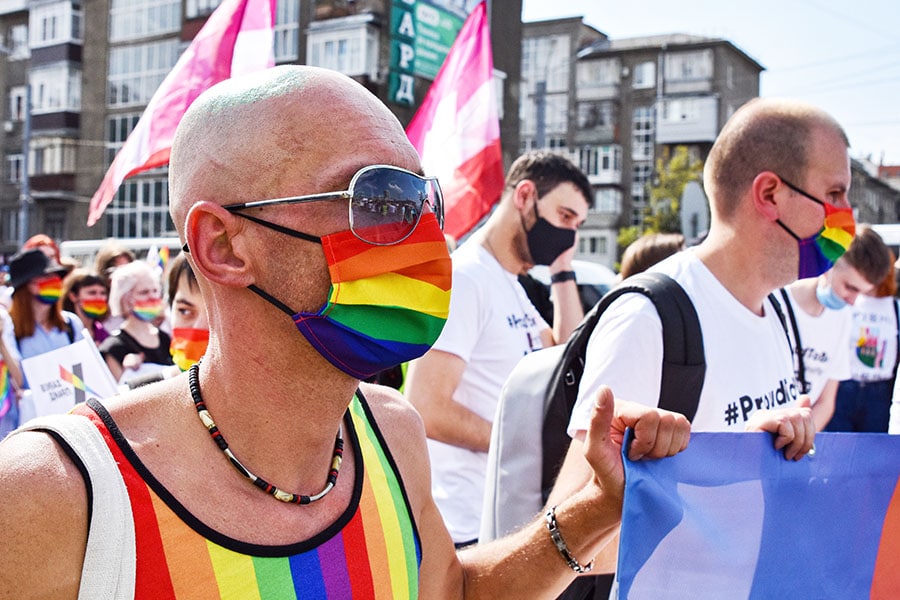
Why war is spurring Ukrainian efforts to legalise same-sex marriages
Under Ukrainian Ministry of Defense regulations, the military must inform the parents and spouse or other close relatives of a soldier who is killed. But in a country that does not recognize gay marriage or even civil unions, none of that applies to a same-sex partner
 A file photo of Kharkiv Pride, Ukraine. Image: Andriy Andriyenko/SOPA Images/LightRocket via Getty Images
A file photo of Kharkiv Pride, Ukraine. Image: Andriy Andriyenko/SOPA Images/LightRocket via Getty Images
Like many people at war in Ukraine, Olexander Shadskykh, 23, a combat medic in the army, has been forced to grapple with his own mortality. But he also has another fear weighing on his mind: What if he is killed and his boyfriend doesn’t find out in time for his funeral?
Under Ukrainian Ministry of Defense regulations, the military must inform the parents and spouse or other close relatives of a soldier who is killed. But in a country that does not recognize gay marriage or even civil unions, none of that applies to a same-sex partner.
Shadskykh fears that if he doesn’t return home, his boyfriend, whom he asked be identified with only his given name, Vitalik, won’t learn about his death to say a final goodbye.
“My mother doesn’t know about Vitalik,” he said. “I want to tell her when I get home.”
Gay rights advocates said Shadskykh is one of hundreds — possibly thousands — of LGBT military recruits, facing a lack of legal rights for them and their partners that suddenly poses a palpable challenge in wartime. In Ukraine, they do not have the automatic right to visit a hospitalized partner, to share property ownership, to care for a deceased partner’s children, to claim the body of a partner killed in war or to collect death benefits from the state.
©2019 New York Times News Service







